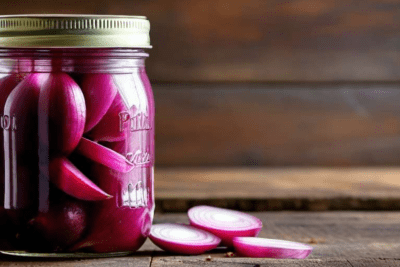
Many people with diabetes are often faced with numerous dietary restrictions, leading to the common misconception that fruit is off-limits. However, the truth is more nuanced and encouraging. Fruits can be part of a balanced diabetic diet, offering essential nutrients and health benefits when consumed mindfully.
Understanding how different fruits affect blood glucose levels is crucial for managing diabetes effectively. In this article, we'll explore the myths and facts about eating fruit for diabetics, offering guidance on making informed choices.
🔍 Seeking a breakthrough in Type 2 Diabetes management?
Discover our expert insights and innovative approaches on ‘How to Cure Diabetes’.
Click to transform your health journey today!
What you\'ll find in this article?
Can People With Diabetes Eat Fruits?
It is a widespread myth: I can't eat fruit if I have diabetes, yet nutrition experts confirm that when portion size and glycemic index are taken into account, fruit can be a healthy part of a diabetic meal plan. Fruits provide vitamins, minerals, and fibers that have a positive impact on overall health.
Choosing fruits with a lower glycemic index, such as berries or apples, helps in maintaining stable blood glucose levels. It's also important to consider the whole fruit instead of fruit products which may contain added sugars or syrups.
Diabetes-friendly fruits include berries, cherries, apples, and pears, among others. These options have lower glycemic indices and contribute to a well-rounded diet. Balance and moderation are key for eating fruit on a diabetic diet.
By incorporating fruit into a diabetic diet carefully, it can help in managing blood glucose levels while still enjoying the natural sweetness of fruit.
Explore our specialized services in diabetes care 🌟.
From personalized diet plans to effective exercise routines, we have what you need to take control of Type 2 Diabetes.
Visit our services page now!












Worst Fruits for Diabetes: What to Avoid
While fruits are nutritious, some have high sugar content that can cause spikes in blood glucose levels. It's recommended to limit or avoid certain fruits, especially if they're canned in syrup or dried with added sugar.
- Fruits to avoid with diabetes often include those high on the glycemic index, like pineapples and melons.
- Processed fruits with added sugars, such as fruit cocktails and canned fruits, are also not advisable.
- Dried fruits, although nutritious, are higher in sugar content and may affect blood glucose levels more than fresh fruits.
Being aware of portion sizes is essential when consuming fruits that are higher in sugar to prevent unintended increases in blood glucose.
Myths About Fruit and Diabetes
There are many diabetic diet myths related to fruit consumption. A common misconception is that diabetics should avoid fruit altogether due to its sugar content. However, this ignores the fact that fruits contain natural sugars, which have a different impact on blood glucose levels than added sugars.
Another myth is that so-called 'diabetic foods' are necessary and safer options, which is not always true. Often, these foods can still impact blood glucose and may contain other unhealthy additives.
Dispelling the myth: Can you eat fruit if you have diabetes? Yes, you can, but with mindfulness to the type of fruit and portion sizes.
Is Fruit Juice Safe for Diabetics?
Fruit juice, while derived from fruits, often has a higher concentration of sugars and lacks the fiber found in whole fruits. This can lead to more significant spikes in blood glucose levels.
If choosing to drink fruit juice, it's crucial for individuals with diabetes to opt for 100% fruit juices without added sugars and to consume it in small quantities. However, eating whole fruits is generally the preferred option.
Blending fruits into smoothies can be a better alternative, as this retains the fiber. Nevertheless, being mindful of the overall carbohydrate intake is still necessary.
Tips for Eating Fruit With Diabetes
Here are some tips to safely include fruit in a diabetes-friendly diet:
- Select fruits primarily low in glycemic index to minimize blood sugar spikes.
- Pair fruits with proteins or healthy fats to slow down the absorption of sugar.
- Be mindful of portion sizes and total daily carbohydrate intake.
- Opt for fresh or frozen fruits without added sugars over canned or processed options.
- Monitor blood glucose levels to see how different fruits affect your body.
With proper management, fruits can be a delicious and healthy addition to a diabetic diet.
The Importance of Portion Control
Portion control is paramount in managing diabetes. It helps ensure that the body is not overloaded with sugar, whether natural or added. Understanding and managing portion sizes can reduce the risk of health issues and assist in maintaining desired blood glucose levels.
Using tools like measuring cups or a food scale can aid in keeping track of fruit intake. Learning to visualize portion sizes without tools can also be helpful for long-term dietary management.
Remember that balancing fruit consumption with other food groups and spreading it evenly throughout the day can support stable blood sugar levels.
Can Diabetics Not Eat Fruit?
Contrary to common beliefs, diabetics can eat fruit, but it's essential to choose the right kinds and manage quantities. Fresh, whole fruits with lower glycemic indices are preferable.
Practicing portion control and being aware of the overall carbohydrate counts within the daily diet allows for the inclusion of fruit without significant blood sugar spikes.
What Is the Safest Fruit for a Diabetic?
The safest fruits for those with diabetes are typically those with lower glycemic index values, such as berries, apples, and pears. These fruits have less impact on blood glucose levels when consumed in moderation.
It's also beneficial to choose fruits rich in fiber, as fiber can help slow the absorption of sugar, maintaining more consistent blood glucose levels.
What Happens When a Diabetic Eats Too Much Fruit?
Consuming too much fruit can lead to elevated blood glucose levels in diabetics, especially if the fruits are high in sugar or consumed in large portions. This can potentially lead to symptoms of hyperglycemia and long-term complications if not managed properly.
Therefore, it's critical for diabetics to monitor their fruit intake and keep track of their body's response through regular blood glucose testing.
How Much Fruit Can a Diabetic Eat Per Day?
The amount of fruit a diabetic can eat per day varies based on individual dietary needs, overall health, and how their body responds to carbohydrates. Generally, guidelines suggest that two to four servings of fruit per day can be included as part of a balanced diabetic diet.
Consulting with a healthcare professional or a registered dietitian can provide personalized recommendations tailored to one's specific health profile.
Amidst our discussion on the benefits and precautions of eating fruit for diabetics, let's take a moment to view a helpful resource on the topic. This video provides additional insights into managing diabetes with diet:
In conclusion, while fruit does contain sugar, the key for diabetics is to choose the right types of fruit and to control portion sizes. By doing so, it's possible to enjoy the nutritional benefits of fruits without compromising blood glucose control. A comprehensive understanding and approach to fruit consumption can make it a valuable component of a balanced, diabetes-friendly diet.
✨ Other articles you might be interested in:



